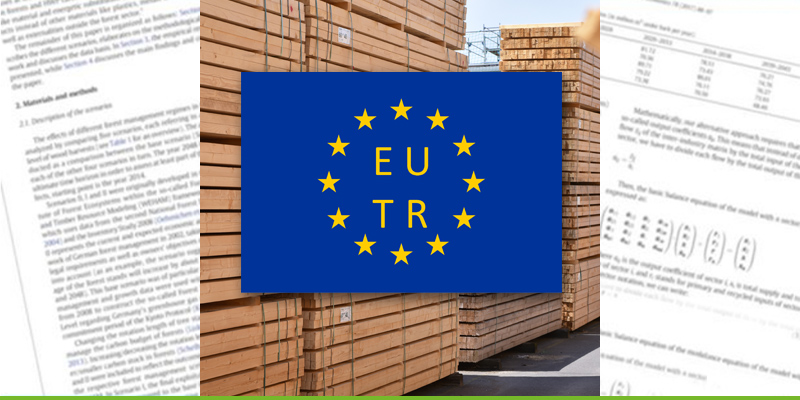The EU Timber Regulation (EUTR) requires companies in the EU to exercise due diligence along their supply chains when importing timber products in order to prevent illegally sourced timber products from entering the European market. Little is known about the behavior and motives of market players to comply with this regulation.
In a study conducted by the Thünen Institute and the University of Freiburg, these motivations were examined and qualitative and quantitative data from several rounds of interviews with market participants were analyzed. The study examines the extent to which regulatory, economic, normative and cultural-cognitive motivations of companies influence their compliance behavior.
The empirical analyses show that larger, publicly exposed companies are primarily induced to comply with the EUTR by social pressure and the deterrent effect of sanctions and controls. Economic motivations, such as the assessment of the cost-benefit ratio of (non-)legally compliant behavior, on the other hand, do not explain compliance behavior to any significant extent. The internal values of complying with the law prove to be a stronger motivator than economic cost-benefit calculations.
- Köthke M, Sotirov M (2024) How and why do economic operators comply with EU Law? Analysis of firm-level responses to the EU Timber Regulation in Germany. J Common Market Stud: Online First, Feb 2024, DOI:10.1111/jcms.13585
https://literatur.thuenen.de/digbib_extern/dn067720.pdf - Project:
The EU Timber Regulation and its effects




![[Translate to English:] Logo des Bundesministerium für Ernährung und Landwirtschaft](/media/allgemein/logos/BMEL_Logo.svg)